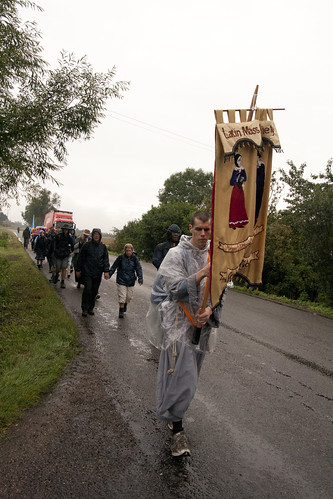Pope Benedict XVI has today appointed the Very Reverend Monsignor Stephen Robson as the new Auxiliary Bishop of the Archdiocese of St. Andrews and Edinburgh. The new Bishop will assist Cardinal Keith O’Brien in the administration of the diocese. The diocese last had an Auxiliary Bishop in 1996 and the appointment reflects Cardinal O’Brien’s national responsibilities and his international role as a member of a number of Pontifical Councils in Rome.
Commenting on the appointment Cardinal O’Brien said:
“I have known the new Auxiliary Bishop, Mgr Stephen Robson for well over 35 years. He has been involved with me in pastoral work and school work, seminary apostolate and during his further studies, literally everything a priest should be involved in. I am happy once again to have an Auxiliary Bishop to help in pastoral work and administration following on from my previous Auxiliaries; Bishop Monaghan (1985 – 1989) and Bishop Rafferty (1990 – 1996).
Cardinal O’Brien added:
“Mgr Stephen combines two great qualities in a very special way: He is highly respected by his brother priests and also by the Deacons, religious and people of this Archdiocese and beyond because of his open, friendly and pastoral zeal; Also, he combines his very personal manner with his own deep spirituality and academic learning, so that he can bring to bear on a variety of problems an incisive knowledge and an ability at decision making.”
Cardinal O’Brien concluded:
“I have every hope that he will continue to work well with me and everyone in our Archdiocese in the years which lie ahead as I become ever more aware of my national responsibilities in our country and my responsibilities to Pope Benedict XVI as a Cardinal of our Church.”
Reacting to the appointment Mgr. Robson said:
“Although I have experienced great peace and joy on receiving the Appointment by the Holy Father as Auxiliary Bishop to Cardinal O'Brien there has also been a great sense of unworthiness and at the same time, trust. As a deeply committed Roman Catholic I love the Church deeply, seeing her, not as so many do as simply an Institution but as the Community of the Risen Lord on Pilgrimage through life.”
Mgr Robson added:
“My first duty as Auxiliary is to my Archbishop, Cardinal O'Brien and he is no stranger to me. I have known him over 35 years and served him as my Bishop for twenty-seven years. As he reminds me I am his Auxiliary, first and foremost! My second duty is to serve the Priests and then the Faithful and Religious of our Archdiocese in the best way I can. And this is impossible without the help of the Good Shepherd who is the model, inspiration and more important the grace and strength working through all Bishops.”
Mgr Robson concluded:
“I have had many interesting and fruitful jobs in our Archdiocese in the past thirty three years - in parishes, seminaries in Aberdeen and Rome, in the Archdiocesan Education Service, the Chancery the National Tribunal, the Education Commission. I have been fortunate to work as assistant priest in a parish to Secretary to the Archbishop, from Parish priest to Chancellor. And none of it has been possible with out the constant help of the Good Lord and the encouragement of my Superiors - wherever I have been. I have been an academic and, though I also love academia, gladly lay all this aside so that I can be of use to those I am called to serve in the bigger picture. Please pray for me.”
~~*~~
- Commentary over at the benedictoblate blog.
- Scottish Catholic Observer commentary too: sconews.co.uk
- and a second article, too!

















